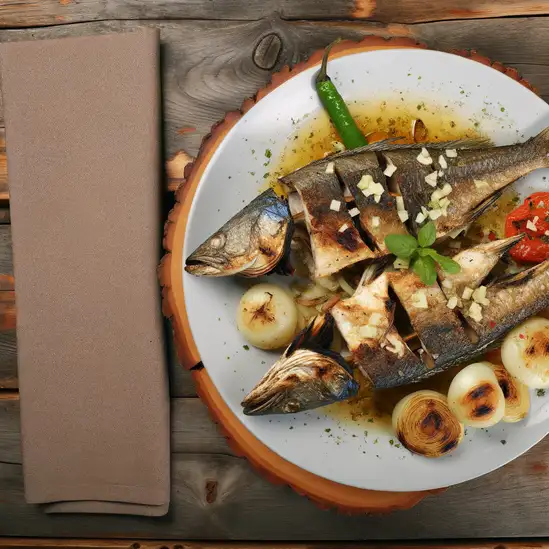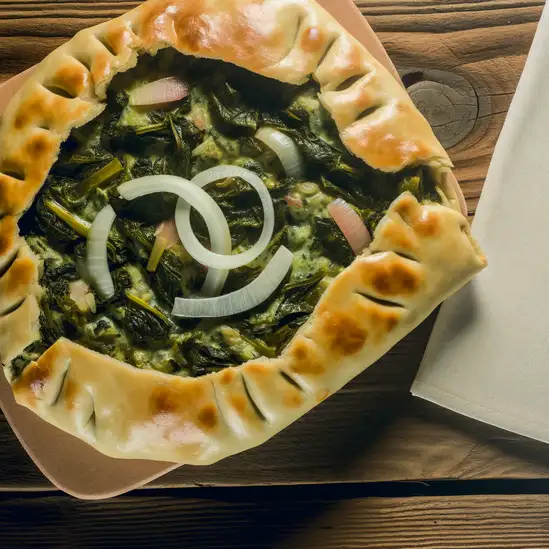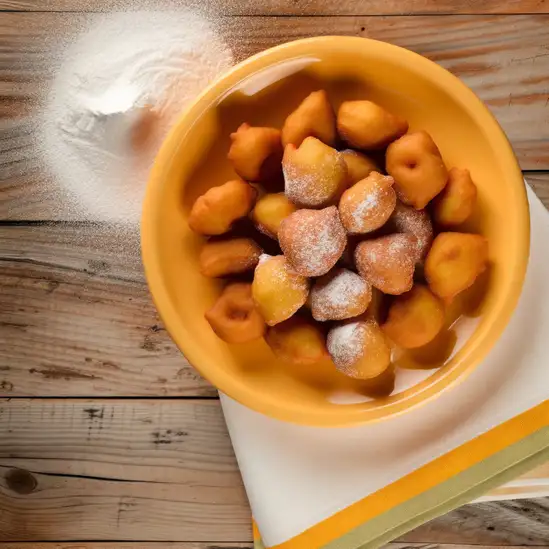



If you ever find yourself wandering the Dalmatian coast,make sure Orebić is on your radar—it’s one of those places that wraps you in a gentle,timeless embrace the moment you arrive. The town perches gracefully along the Pelješac Peninsula,where the sea shimmers in shades of turquoise and deep blue,and the scent of pine mingles with salty air. Walking along the waterfront,you’ll hear the soft clinking of boat masts and the distant chatter of fishermen unloading their catch,while the sun warms your skin and the breeze carries whispers of the Adriatic. Orebić has this laid-back charm that feels both authentic and inviting. The streets are lined with pastel-colored houses,their shutters flung open to catch the light,and cozy cafés spill out onto the sidewalks,tempting you with the aroma of freshly brewed coffee and sweet pastries. The locals are warm and proud of their maritime heritage,and you can sense it in the stories shared over glasses of local wine,especially the crisp,refreshing whites from nearby vineyards. What really makes Orebić stand out is its blend of history and nature. You can climb up to the Franciscan monastery for panoramic views that steal your breath away,or hop on a ferry to the enchanting island of Korčula just across the water. Whether you’re savoring fresh seafood at a family-run konoba or wandering through olive groves,Orebić feels like a place where time slows down,inviting you to savor every moment.
The information on this page is currently being reviewed by Tripkliq and should be used as a guide only
Eng word: Hello
Eng pronunciation: Bohk
Local language: Bok
Eng word: Goodbye
Eng pronunciation: Doh-vee-jen-ya
Local language: Doviđenja
Eng word: Thank you
Eng pronunciation: Hvah-lah
Local language: Hvala
Eng word: How much
Eng pronunciation: Koh-lee-koh
Local language: Koliko
Eng word: Toilet
Eng pronunciation: Toh-ah-let
Local language: Toalet
Eng word: Help me
Eng pronunciation: Poh-moh-zee mee
Local language: Pomozi mi
Eng word: Yes
Eng pronunciation: Dah
Local language: Da
Eng word: No
Eng pronunciation: Neh
Local language: Ne
Eng word: Excuse me
Eng pronunciation: Oh-proh-stee-teh
Local language: Oprostite
Orebić is renowned for its rich maritime history. In the 19th century, it was a prominent maritime center with a fleet of over 90 ships, making it one of the most important maritime hubs on the Adriatic coast.
The town is famous for its grand captain's houses, built by wealthy sea captains. These beautiful stone houses, often adorned with lush gardens, reflect the prosperity brought by maritime trade.
The Franciscan Monastery of Our Lady of Angels, built in the 15th century, is a significant historical and religious site. It offers stunning views of the Pelješac Channel and the island of Korčula.
St. Stephen's Church, located in the heart of Orebić, dates back to the 17th century. It is a beautiful example of Baroque architecture and a key landmark in the town.
During the Napoleonic Wars, a strategic road was built through Orebić, known as Napoleon's Road. This historical route is still visible today and offers a glimpse into the town's past.
The ferry connection between Orebić and the island of Korčula has been a vital link for centuries, facilitating trade and cultural exchange between the two regions.
The Maritime Museum in Orebić showcases the town's seafaring history, with exhibits including ship models, navigational instruments, and maritime artifacts.
Orebić is part of the Pelješac Peninsula, known for its long tradition of wine-making. The region produces some of Croatia's finest wines, including the famous Dingač and Postup varieties.
The town's historic cemeteries, such as the one near the Franciscan Monastery, are resting places for many sea captains and notable figures, offering a poignant connection to Orebić's past.
In Orebić, the most common Power Adaptor is Type C, Type F.



A traditional Croatian dish made by slow-cooking meat and vegetables under a bell-like lid, often served with potatoes.

Grilled fish, typically fresh catch from the Adriatic Sea, seasoned with olive oil, garlic, and herbs.

A savory pie filled with Swiss chard and onions, encased in thin dough, and baked until crispy.

Small, sweet doughnuts flavored with citrus and often sprinkled with powdered sugar, popular during festive seasons.

A slow-cooked beef stew marinated in red wine and spices, often served with gnocchi or homemade pasta.

Locally produced olive oil, known for its high quality, often used in various dishes or enjoyed with bread.

If you ever find yourself wandering through the sun-drenched streets of Dubrovnik,you’ll immediately feel like you’ve stepped into a living storybook. The city’s ancient stone walls rise proudly against the sparkling Adriatic,and as you stroll along the marble-paved Stradun,the salty sea breeze mingles with the scent of fresh pine and blooming bougainvillea. There’s a rhythm here—a gentle hum of life where history and modern charm dance together effortlessly.
Dubrovnik’s character is woven into every corner:the clatter of café cups,the murmur of locals chatting in cozy taverns,and the distant call of seagulls overhead. You can almost taste the city in the air—briny and fresh,with hints of grilled seafood and ripe figs from the markets. Sitting at a seaside restaurant,watching the sun dip behind the fortress walls,you’ll savor dishes bursting with Mediterranean flavors,paired with a glass of crisp Croatian white wine.
What makes Dubrovnik truly special is how it balances its rich past with a vibrant present. The city’s narrow alleys invite exploration,revealing tucked-away galleries,artisan shops,and lively squares where music spills out into the streets. Whether you’re tracing the footsteps of ancient mariners or simply soaking up the golden light on a quiet terrace,Dubrovnik feels like a warm embrace—inviting,timeless,and utterly unforgettable.
If you ever find yourself wandering through Split,it’s like stepping into a living,breathing storybook where ancient history and vibrant modern life dance together effortlessly. The moment you stroll along the Riva promenade,the salty breeze from the Adriatic mingles with the aroma of fresh espresso and grilled seafood wafting from nearby cafés. Locals chat animatedly in the sun-dappled squares,their laughter blending with the distant hum of boats bobbing gently in the harbor. There’s a laid-back energy here that feels both timeless and alive,inviting you to slow down and soak it all in.
Split’s heart beats strongest in Diocletian’s Palace,a sprawling Roman fortress that’s less a museum and more a neighborhood where people live,shop,and gather. Walking through its ancient stone alleys,you’ll catch glimpses of colorful markets,artisan shops,and cozy taverns tucked into centuries-old walls. At night,the city transforms as lanterns flicker on,and the sound of live klapa singing—traditional a cappella harmonies—drifts through the air,wrapping you in a warm,soulful embrace.
What really makes Split unforgettable is how effortlessly it blends the old with the new. You can savor a plate of fresh octopus salad while watching fishermen haul in their catch,then wander to a rooftop bar for a cocktail as the sun sets behind the islands. It’s a place where every corner tells a story,every meal feels like a celebration,and every moment invites you to become part of its ongoing tale.
Imagine stepping into a sun-drenched town where lavender-scented breezes mingle with the salty kiss of the Adriatic Sea—that’s Hvar for you. From the moment you wander through its ancient stone streets,there’s a relaxed yet vibrant energy that wraps around you like a warm embrace. The sunlight bounces off terracotta rooftops,and the sound of laughter spills out from cozy cafés where locals sip espresso and chat animatedly. It’s a place where history and modern life dance effortlessly together.
As you stroll along the harbor,sleek yachts bob gently beside fishing boats,and the air carries the faint aroma of grilled seafood and fresh herbs. The town’s medieval walls and the imposing fortress overlooking the bay tell stories of centuries past,while the lively markets burst with ripe figs,olives,and sun-ripened tomatoes. At sunset,the sky blazes in shades of pink and gold,and the waterfront buzzes with music drifting from open-air bars,inviting you to linger just a little longer.
What makes Hvar truly special is its blend of authenticity and joie de vivre. It’s not just a place to see but a place to feel—whether you’re savoring a glass of local Plavac Mali wine,exploring hidden coves by boat,or simply watching the world go by from a shaded terrace. Hvar’s charm lies in its ability to make you slow down,breathe deeply,and soak in the simple pleasures of life by the sea.
If you ever find yourself dreaming of a place where history whispers through narrow stone streets and the sea breeze carries the scent of pine and salt,Korčula is that kind of magic. Walking through its medieval walls feels like stepping into a living postcard—sunlight dapples the terracotta rooftops,and the gentle lapping of the Adriatic invites you to slow down and soak it all in. There’s a rhythm here,a laid-back pulse that makes you want to linger over a glass of local white wine or fresh seafood caught just hours before.
The town’s character is a beautiful blend of old-world charm and vibrant local life. You’ll hear the melodic chatter of locals in the market,the clinking of glasses in cozy tavernas,and maybe even the distant strum of a guitar during an impromptu street performance. Korčula’s narrow alleys are lined with fragrant lemon trees and bursts of bougainvillea,and every corner seems to tell a story—from the ancient cathedral to the tiny artisan shops where you can find handcrafted olive oil or honey.
What really sets Korčula apart is its sense of place—rooted in tradition but alive with warmth and welcome. Whether you’re savoring a plate of black risotto while watching the sunset paint the sky in fiery hues or wandering the quiet beaches where the water is impossibly clear,you’ll feel like you’ve discovered a slice of the Adriatic that stays with you long after you leave.
If you ever find yourself wandering the Dalmatian coast,Zadar is one of those places that sneaks up on you with its quiet charm and unexpected magic. The moment you step onto its ancient stone streets,there’s this warm,timeless feeling—like the city is gently humming a tune just for you. The salty breeze from the Adriatic mingles with the scent of fresh pine and blooming jasmine,wrapping around you as you stroll along the waterfront. It’s a place where history isn’t just in museums; it’s alive in the crumbling Roman ruins,the medieval churches,and the lively squares where locals gather to chat and sip coffee.
What really sets Zadar apart is its playful spirit. You’ll hear it in the waves as they dance through the Sea Organ,an extraordinary installation that turns the sea’s movement into haunting melodies. And just a few steps away,the Sun Salutation lights up the night with a mesmerizing display of colors,making the waterfront feel like a celebration of nature and art. Grab a seat on the stone benches,watch the sun dip below the horizon,and you’ll understand why Alfred Hitchcock once called Zadar the most beautiful sunset in the world.
The city’s vibe is relaxed but vibrant,with cozy konobas serving up fresh seafood and local wines that taste like the essence of the region. Whether you’re wandering through the bustling market,exploring narrow alleys,or simply soaking in the views from a café terrace,Zadar invites you to slow down,breathe deeply,and savor every moment.
Imagine stepping into a place where every narrow cobblestone street whispers stories from centuries past,and the salty breeze from the Adriatic Sea mingles with the scent of fresh pine and blooming bougainvillea. That’s Trogir for you—a charming,sun-drenched town that feels like a living museum but with a lively,warm heartbeat. As you wander through its maze of medieval alleys,you’ll catch glimpses of ancient stone buildings,ornate churches,and cozy cafés spilling out onto tiny squares where locals sip espresso and chat animatedly.
The vibe here is effortlessly relaxed yet rich with history and culture. You can hear the gentle lapping of waves against the harbor,the distant call of seagulls,and the soft murmur of conversations in Croatian,Italian,and English. At sunset,the golden light bathes the old town in a magical glow,making it the perfect time to savor a plate of fresh seafood—imagine tasting the briny sweetness of grilled fish paired with a crisp local white wine while watching fishing boats bob gently in the harbor.
What makes Trogir truly special is how it balances its deep-rooted heritage with a welcoming,unpretentious spirit. It’s not just a place to see but a place to feel—where history,nature,and everyday life blend seamlessly. Whether you’re exploring the fortress walls,browsing artisan shops,or simply sitting by the water with gelato in hand,Trogir invites you to slow down and soak in its timeless charm.
Tourists may be charged excessive fees for renting beach chairs, umbrellas, or other equipment, especially in high-demand areas.
Tourists may be charged hidden fees or held responsible for pre-existing damage when renting boats or watercraft.
Tourists may be offered unfavorable exchange rates or charged hidden fees at unofficial currency exchange offices.
Scammers may post fake rental properties online, asking for deposits before arrival, only for tourists to find out the property doesn't exist.
Unlicensed individuals may offer guided tours, providing little value or incorrect information while charging high fees.
Some taxi drivers may overcharge tourists by not using the meter or taking unnecessarily long routes.
Scammers may pose as parking attendants, charging tourists for parking in free or public spaces.
Some restaurants may inflate bills by adding items not ordered or charging higher prices than those listed on the menu.
The possession, use, and distribution of illegal drugs are strictly prohibited in Orebić, Croatia. Croatia has stringent drug laws, and violations can result in severe penalties, including fines and imprisonment. Tourists should avoid any involvement with illegal drugs to ensure a safe and trouble-free visit.
In Orebić, Croatia, smoking is generally allowed in outdoor public spaces. However, smoking is prohibited in enclosed public spaces such as restaurants, bars, and public transportation. Some establishments may have designated smoking areas. It is always a good idea to look for no-smoking signs and to ask if you are unsure.
Vaping in Orebić follows similar regulations to smoking. It is generally allowed in outdoor public spaces but prohibited in enclosed public areas. Some restaurants and bars may have specific policies regarding vaping, so it is advisable to check with the establishment.
What are other people saying about Orebić?
Recent Social posts about Orebić
There is nothing to show you for now.